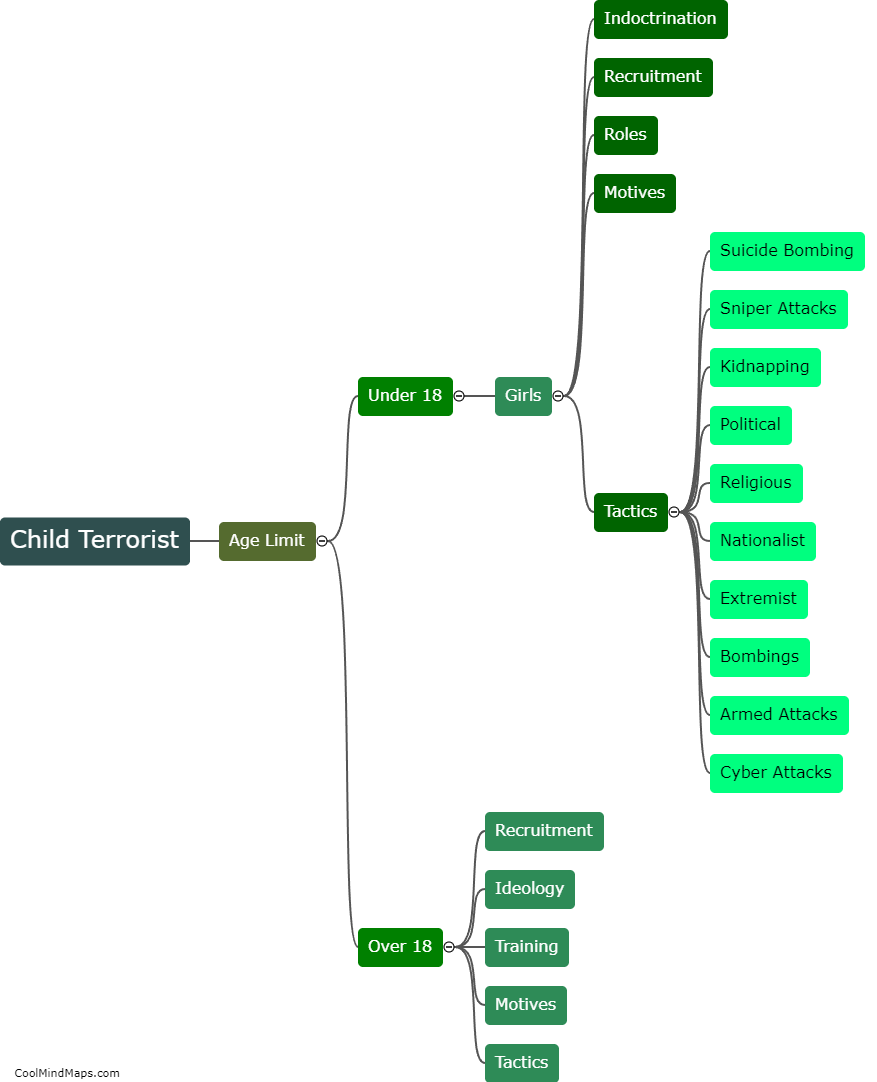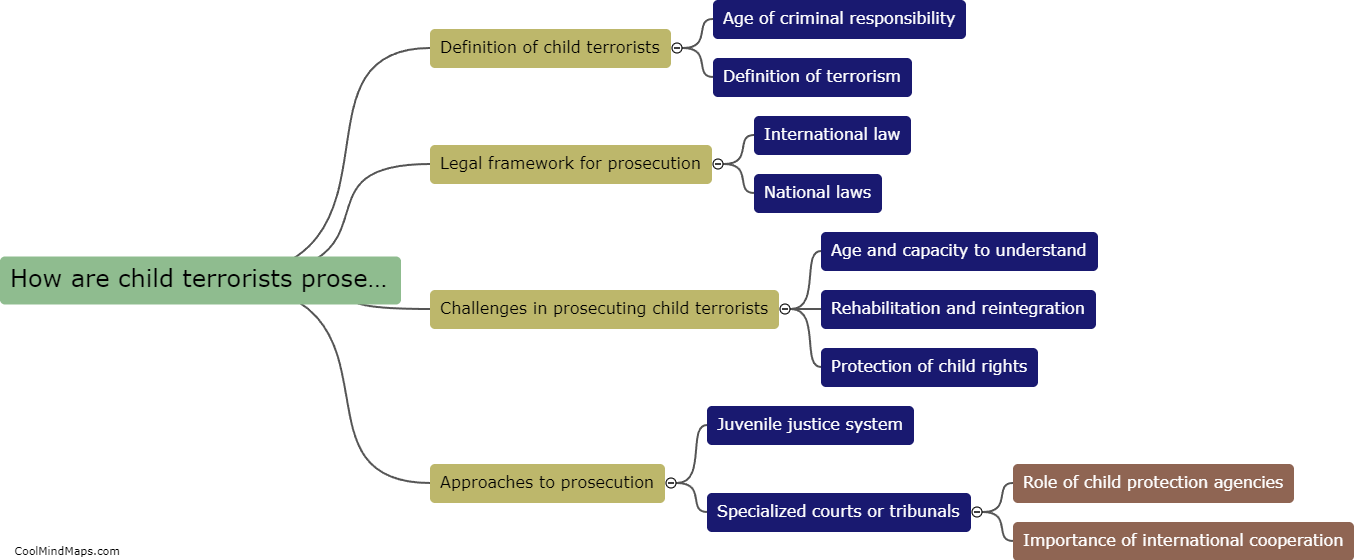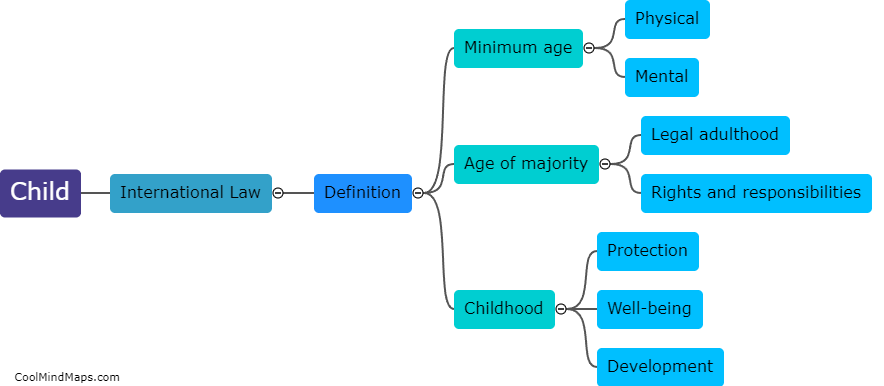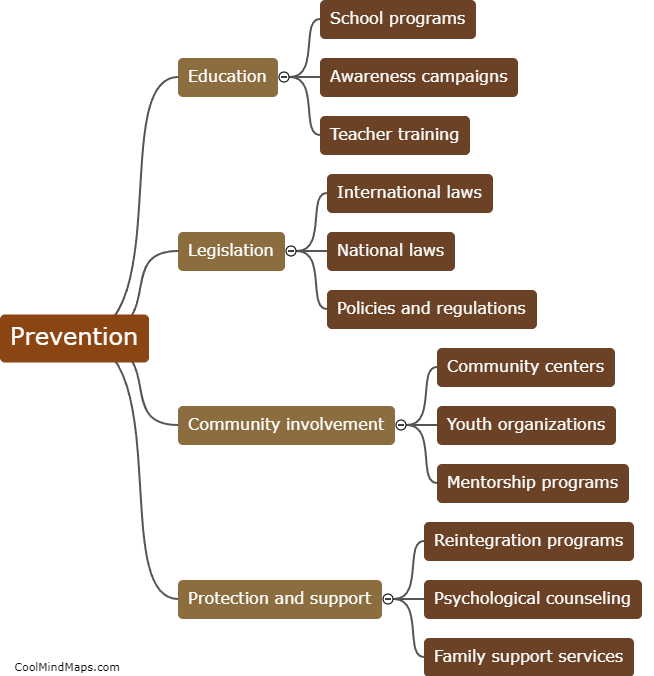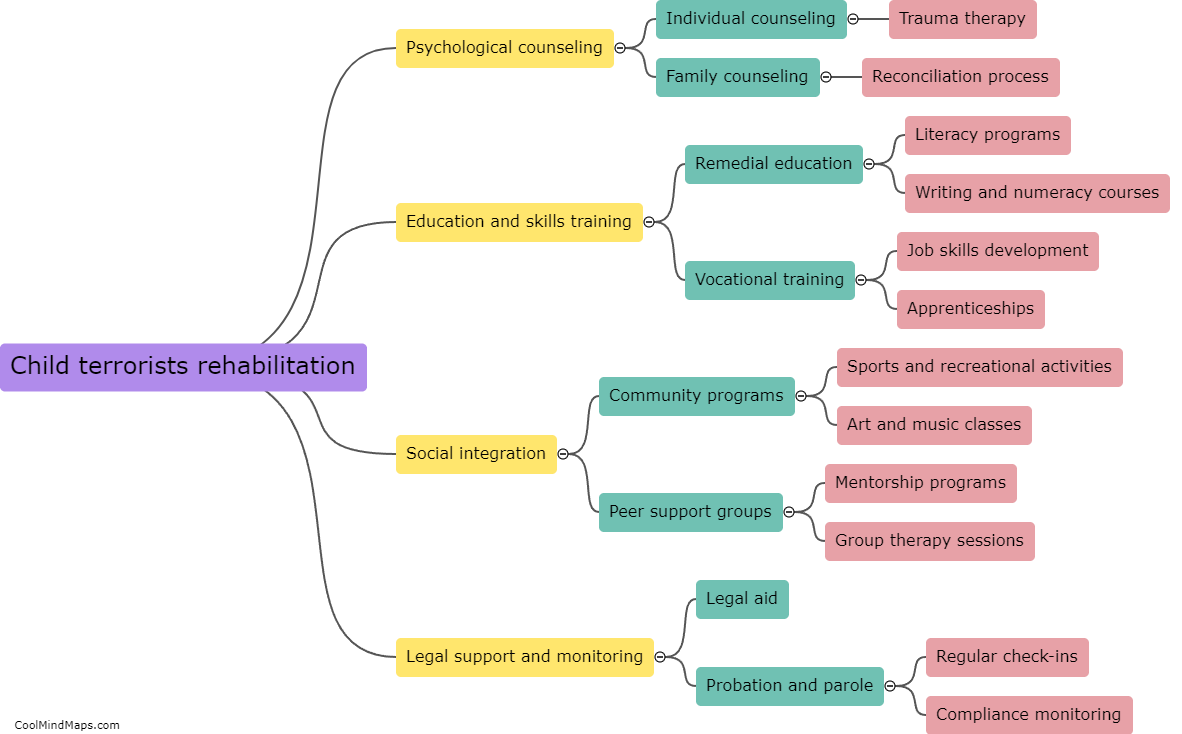What are the legal consequences for child terrorists under international law?
Under international law, legal consequences for child terrorists are primarily guided by the United Nations Convention on the Rights of the Child (UNCRC). This convention holds that children are entitled to protection and special care, and that their best interests should be a primary consideration. While the UNCRC recognizes that children may be recruited or used in armed conflicts, it places the onus on state parties to protect children from any involvement in such activities. Consequently, child terrorists may be subject to a range of legal consequences depending on their age, circumstances, and the severity of their actions. International law generally encourages states to focus on the rehabilitation and reintegration of child terrorists, while avoiding prosecution and imprisonment to the maximum extent possible. It is crucial to strike a balance between accountability and recognizing the vulnerable status of children involved in acts of terrorism, ensuring their rights are respected, and their best interests are upheld.
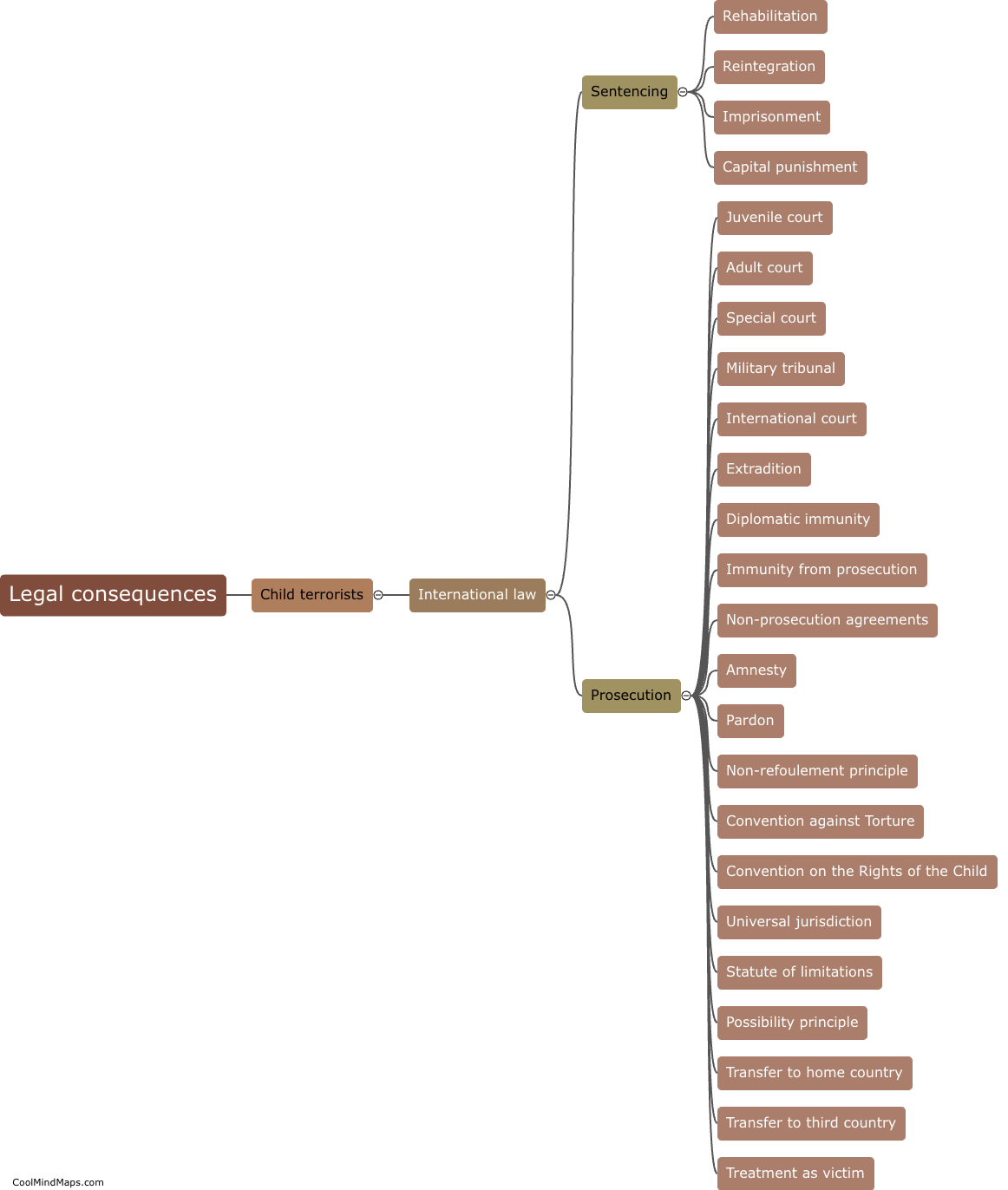
This mind map was published on 22 October 2023 and has been viewed 56 times.





